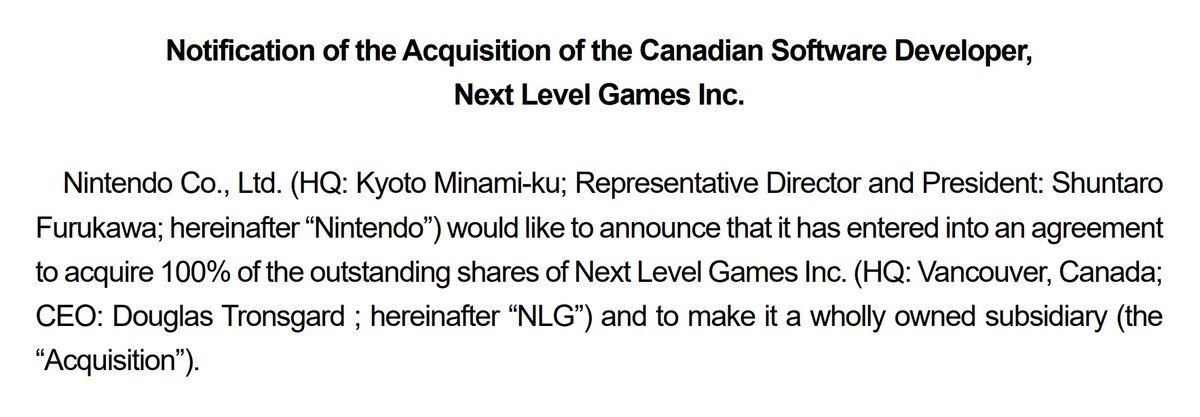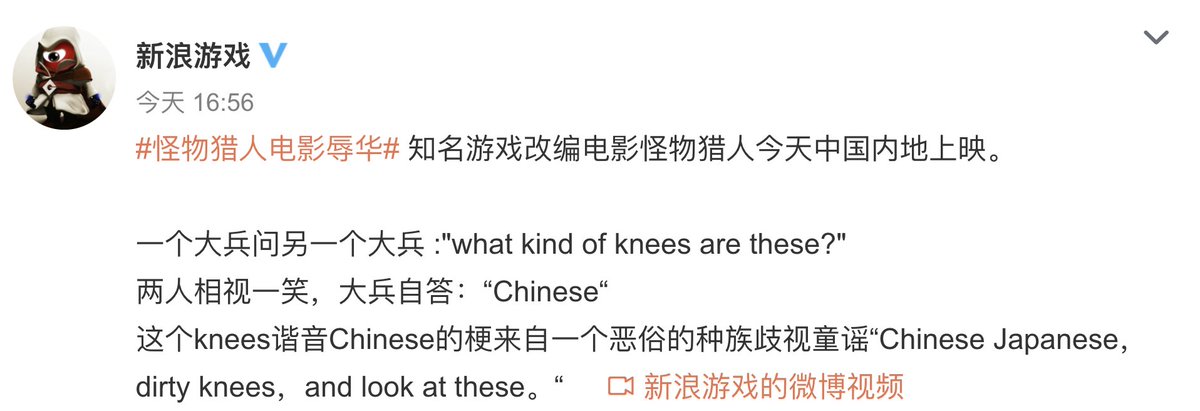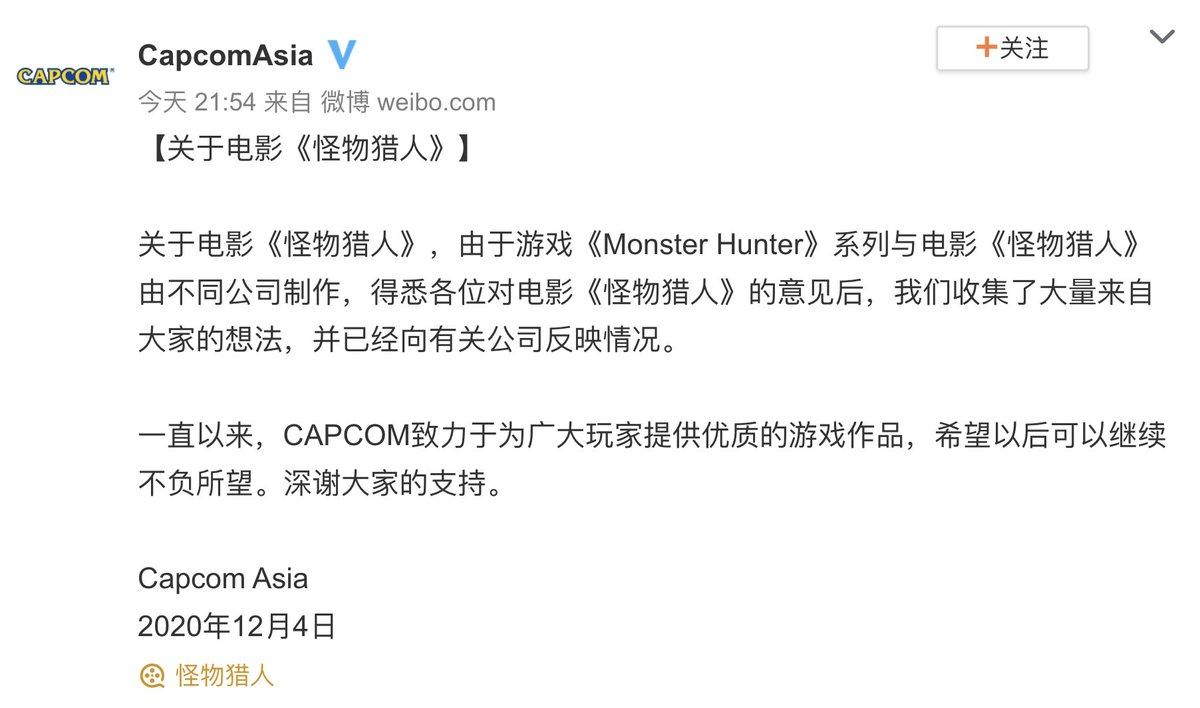
Genshin Impact was one of the biggest hits of 2020 and is on its way to becoming a billion dollar game.
The title reflects the evolution of Chinese game development and showed that Chinese developed games based on original IP can truly succeed on the global stage.
Quick thread-
The title reflects the evolution of Chinese game development and showed that Chinese developed games based on original IP can truly succeed on the global stage.
Quick thread-

To aid this thread I will use some slides from a presentation that Liu Wei, one of the co-founders of MiHoYo, gave at the end of last year.
MiHoYo, the developer of Genshin Impact, was founded in Shanghai back in 2011 by 3 college students. The 3 were fans of ACG culture.
MiHoYo, the developer of Genshin Impact, was founded in Shanghai back in 2011 by 3 college students. The 3 were fans of ACG culture.

What's notable about MiHoYo is that they have been independent since 2011, with their only funding being a $150k angel investment during the firms first year
Their slogan 'Tech Otaku's Save the World' is based on them being Otaku's themselves and creating games in the ACG genre
Their slogan 'Tech Otaku's Save the World' is based on them being Otaku's themselves and creating games in the ACG genre
The company started out making 2D games for mobile with an ACG theme. Its first game was called Fly Me 2 the Moon and was released in 2011. It was essentially a side scrolling game with very basic controls, but as per their slogan, was deeply rooted in ACG culture. 

In 2014 they released Gun GirlZ.
It maintained the ACG elements, the 2D art and the side scrolling elements from its previous games while adding RPG mechanics and a more in depth story.
When the game released, MiHoYo had just 7 employees. It was their first major hit.
It maintained the ACG elements, the 2D art and the side scrolling elements from its previous games while adding RPG mechanics and a more in depth story.
When the game released, MiHoYo had just 7 employees. It was their first major hit.

The success of the game allowed them to grow and work on a new title that combined all of the above into an action RPG in a 3D world with high end graphics.
Honkai Impact 3rd was an even bigger success for the company and showed how the firm was able to continually innovate.
Honkai Impact 3rd was an even bigger success for the company and showed how the firm was able to continually innovate.

MiHoYo had gone from a small start up in 2011 to operating a high quality mobile game in 2016 with Honkai Impact 3rd.
The team, which had grown considerably by this point, was able to build on each of its games to achieve something new and exciting with each new title.
The team, which had grown considerably by this point, was able to build on each of its games to achieve something new and exciting with each new title.

With Genshin Impact the team was striving to go even further and create a true open world RPG to bring a console quality game to mobile users.
A team of 400+ worked over 40+ months on a budget over $100 million to complete the game. Eventually eleasing on Mobile, PC and Console.
A team of 400+ worked over 40+ months on a budget over $100 million to complete the game. Eventually eleasing on Mobile, PC and Console.

The genius of Genshin Impact is that the game feels and plays like a premium console game while ultimately being a free to play gacha title
It not only appeals to its existing user base in China, but also intrigues players overseas and meets them on the platform of their choice
It not only appeals to its existing user base in China, but also intrigues players overseas and meets them on the platform of their choice
MiHoYo was able to create a game that was accessible, yet extremely deep in terms of content.
It created an immersive world and story that was realised through high end production.
The most impressive part was that they were able to scale the experience across multiple devices.
It created an immersive world and story that was realised through high end production.
The most impressive part was that they were able to scale the experience across multiple devices.

Genshin Impact lets people play at their own pace, explore the world and story, and introduces monetisation much later into the game than one would expect.
Genshin builds on MiHoYo's philosophy of 'Paying for Love' which it has held since the early days.
This has two parts:
Genshin builds on MiHoYo's philosophy of 'Paying for Love' which it has held since the early days.
This has two parts:
1. Paying for love is not about paying for a story DLC or a stats boost. It's about the desires of the player and paying for the character that best represents them
2. It's also about being able to experience the game for what it is and paying because you enjoy the experience
2. It's also about being able to experience the game for what it is and paying because you enjoy the experience
It's this philosophy that shapes the monetisation aspect of Genshin Impact and why it has been so successful.
The days with the highest revenue have been when new characters have released or during special character banner events. E.g. Dec 1 with ZhongLi release.
The days with the highest revenue have been when new characters have released or during special character banner events. E.g. Dec 1 with ZhongLi release.
MiHoYo has a good formula for success with Genshin Impact, as the past few months have shown. MiHoYo’s challenge has been to release a steady flow of content to keep players engaged over the long term.
Despite some bumps in the road, the company is succeeding overall.
Despite some bumps in the road, the company is succeeding overall.
Developers around the world should be looking to Genshin Impact and learning lessons from its success.
It shows how traditional AAA experiences can evolve with a F2P model and it shows how mobile first titles can scale across multiple platforms.
It shows how traditional AAA experiences can evolve with a F2P model and it shows how mobile first titles can scale across multiple platforms.
Genshin Impact’s global success also reflects how Chinese game development has evolved, from outsourced artwork 15 years ago to full game development for the domestic market more recently, and now to developing games that resonate with global markets as well as the home front.
• • •
Missing some Tweet in this thread? You can try to
force a refresh






